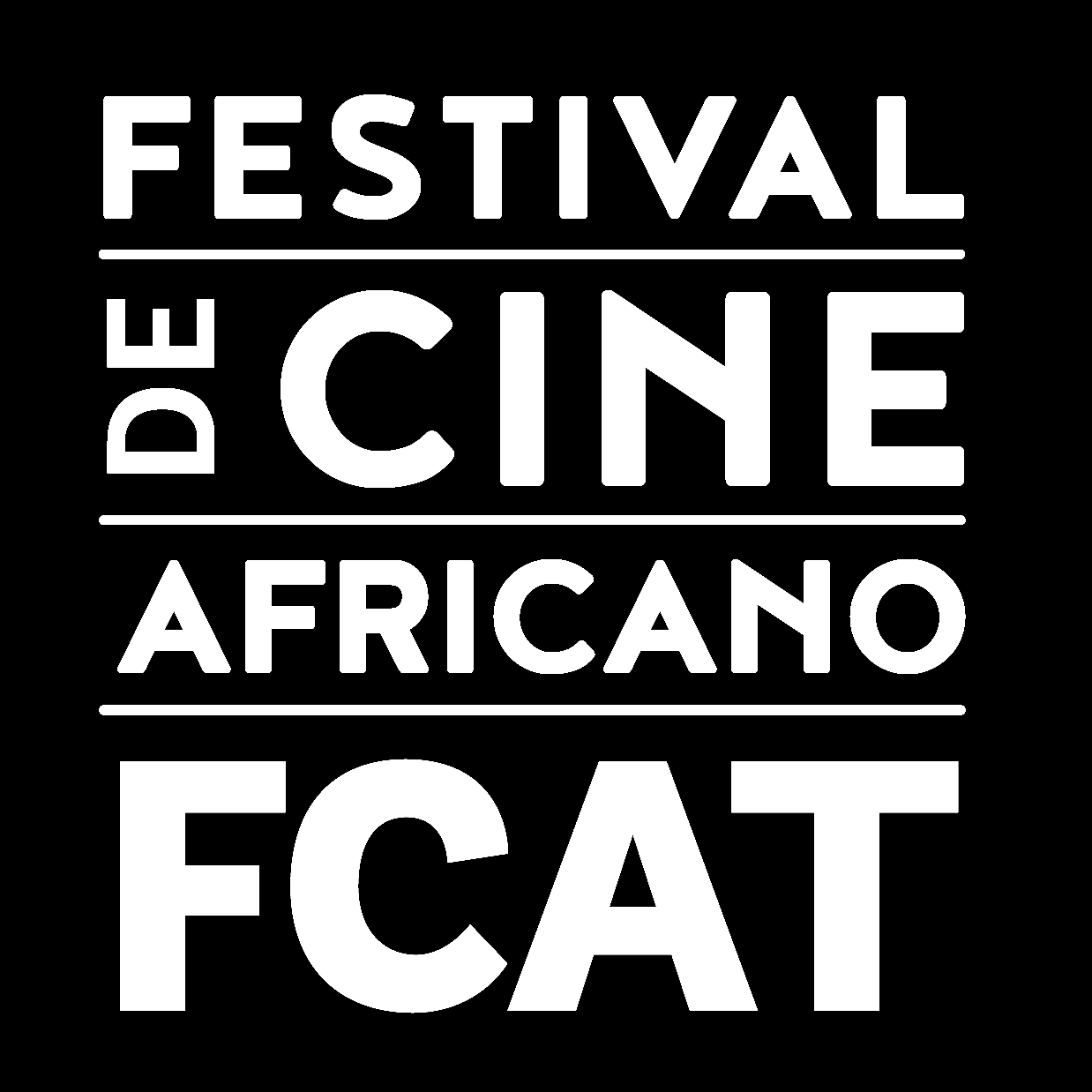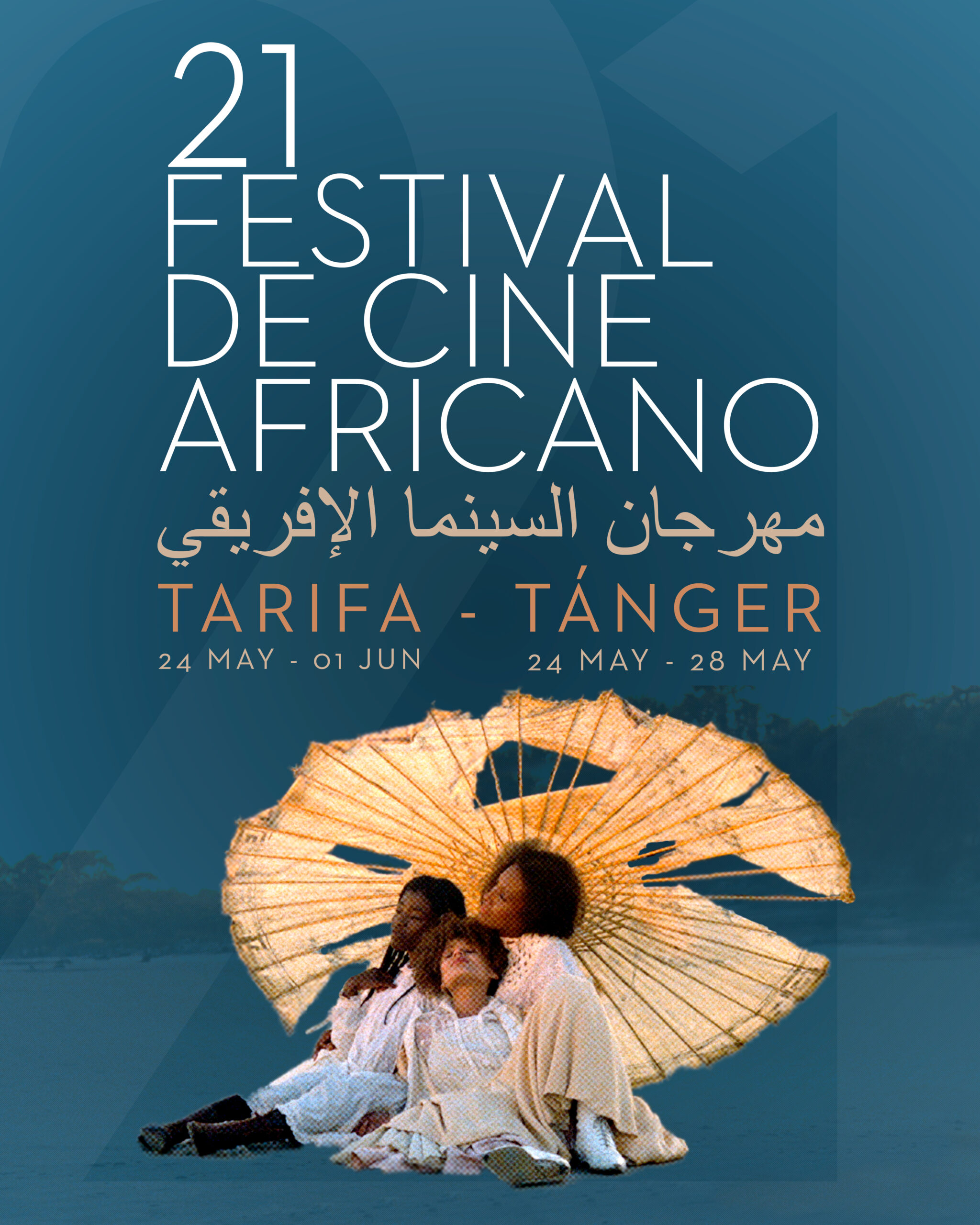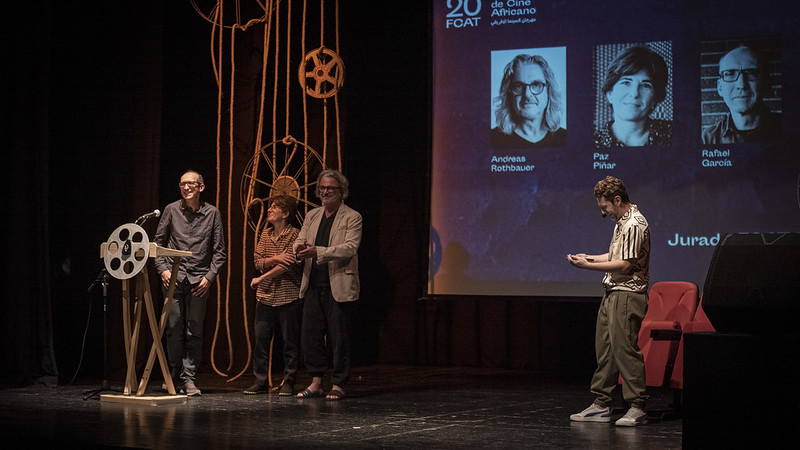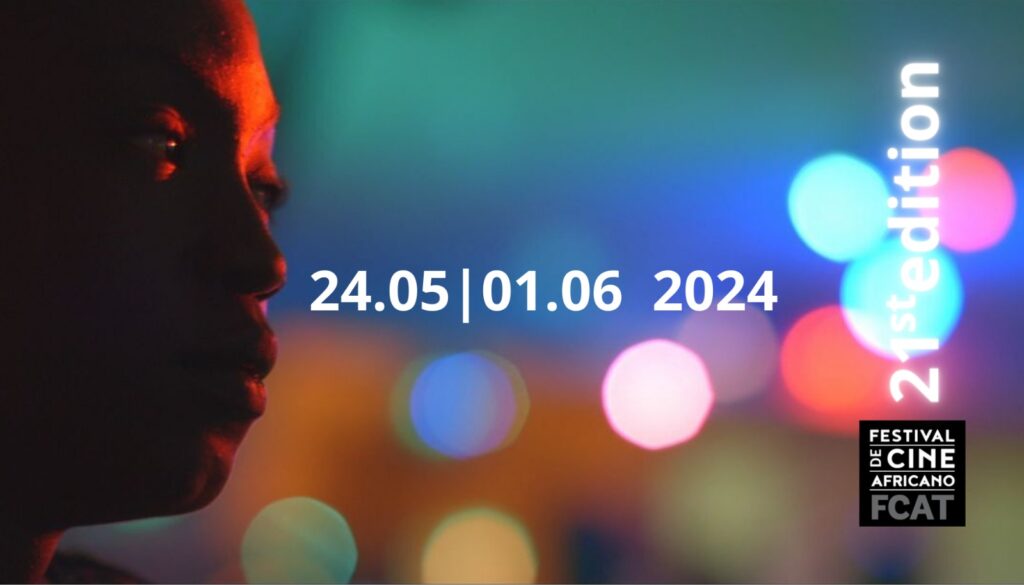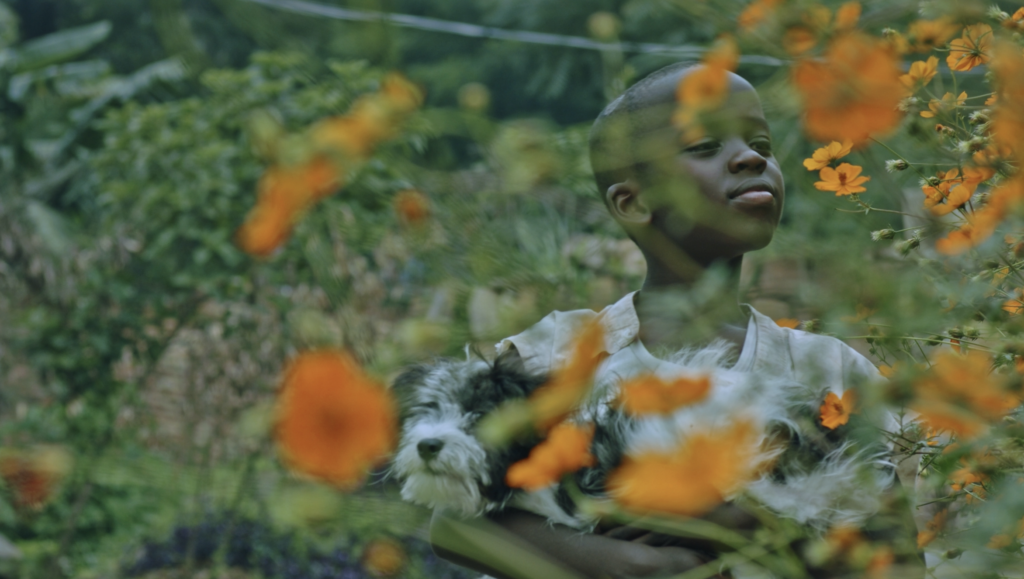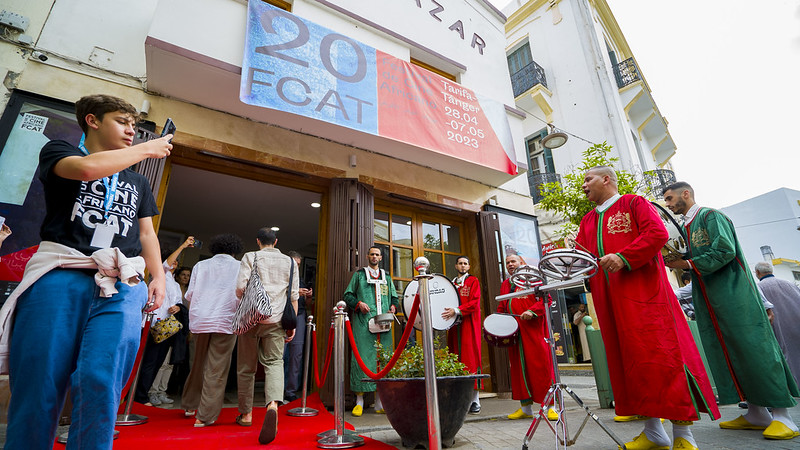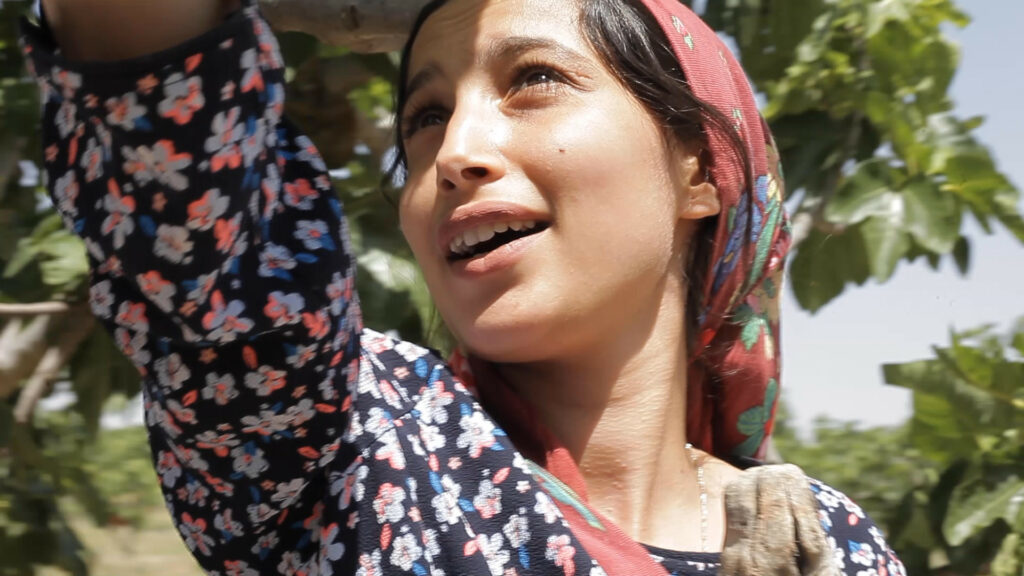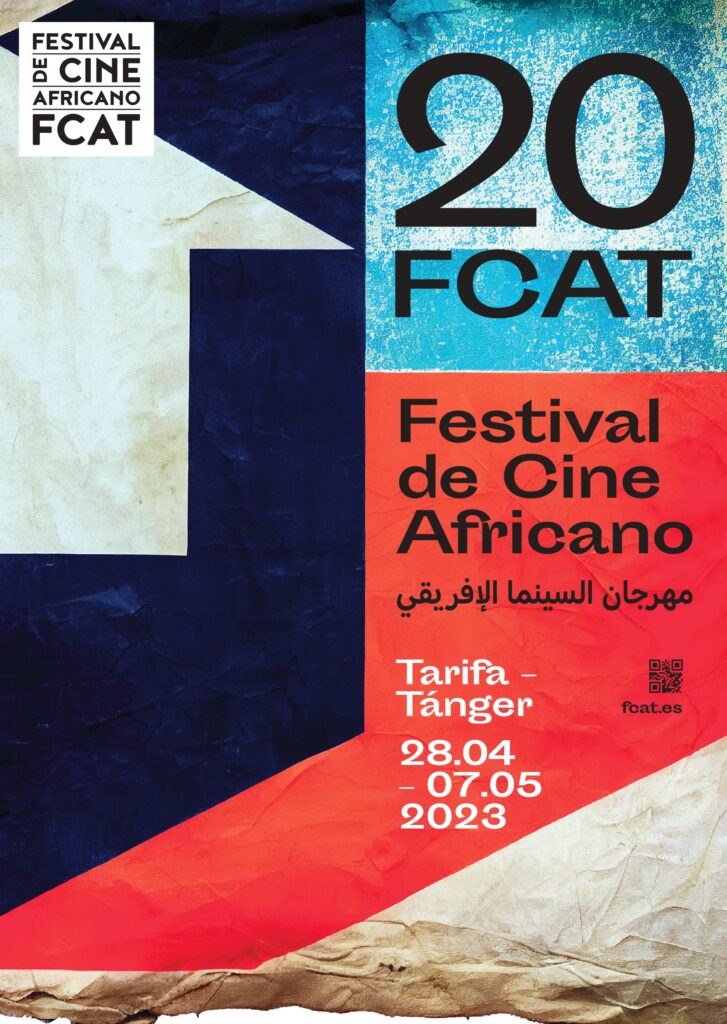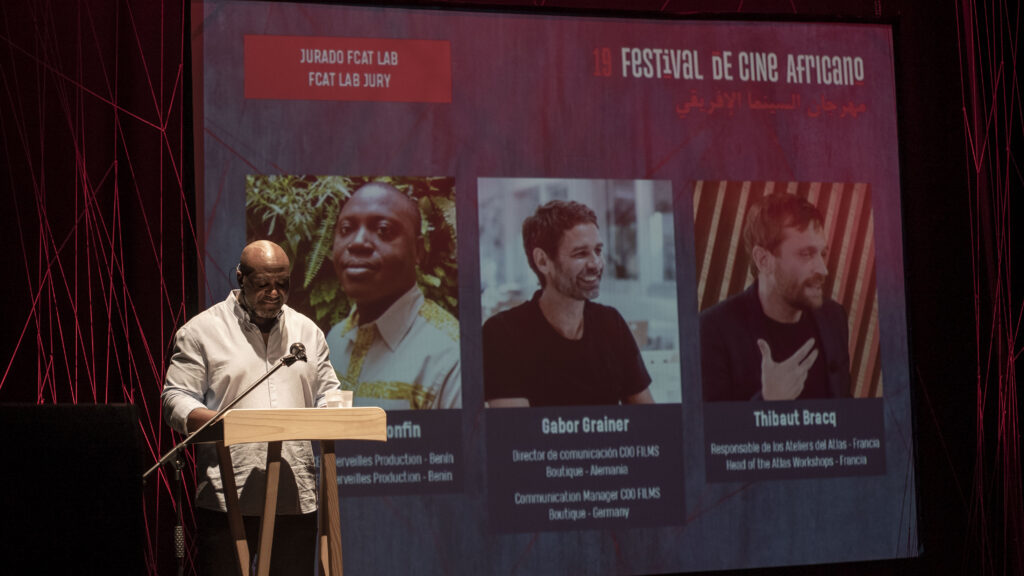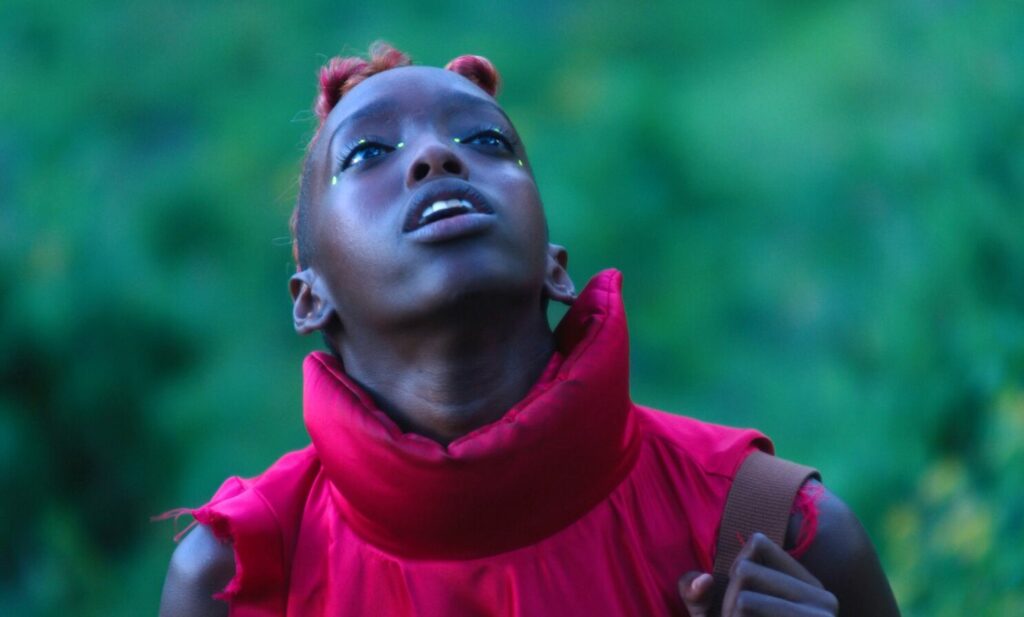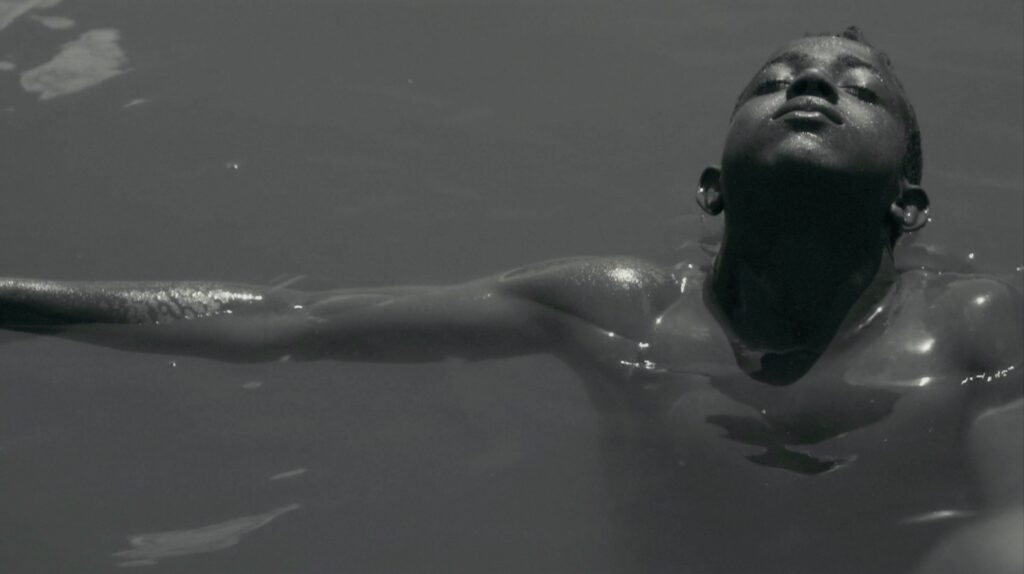Between May 24 and June 1, the festival will once again unite two continents through cinema in an edition that introduces a new Festival satellite in Seville.
Seville, April 9, 2024. Cinema directed by women and reflections on Afrofeminisms will illuminate the 21st edition of the Tarifa-Tangier African Film Festival (FCAT), which returns to be held on both continental shores between May 24 and June 1. The poster for this edition has been unveiled in a beautiful courtyard in Seville, at the Cultural Initiatives Center of the University of Seville (CICUS), home of the festival and its film collection throughout the year. The event celebrates African cultures, setting the countdown for another encounter with African cinema.
A poetic still from the film Daughters of the Dust (1991), directed by filmmaker Julie Dash, featuring three women sitting on a beach in a spirit of sisterhood, graces this year’s poster. It was the first film directed by an African American woman to receive a wide release in US theaters. The film narrates various stories of black women with stunning visual beauty and has been included in the National Film Registry of the United States Library of Congress “for its cultural, historical, and aesthetic significance.”
During the event, the Director of Culture and Heritage at the University of Seville, Luis Méndez, and the director of FCAT, Mane Cisneros, once again emphasized how this festival of the Strait helps “to unite through culture, as well as to forge ties with our Moroccan neighbors.” The festival director celebrated the recent success of African cinema in international festivals, such as the latest Golden Bear at the Berlinale for the French-Senegalese director Mati Diop with her film Dahomey.
Representatives from the Three Cultures Foundation, the Audiovisual Council of Andalusia, the French Institute, and the General Consulate of Portugal in Seville, among cinephiles, journalists, and friends of FCAT, were present at an event that concluded festively in the courtyard of CICUS with a Sufi twist by the dancer based in Tarifa, María Calera.
Afrofeminisms
Cisneros has highlighted that many of these films “making their way through the world’s major festivals are made by women,” with names such as Mati Diop, Alice Diop, Kaouther Ben Hania, or Asmae El Moudir, some of which have previously been screened at the African Film Festival. In fact, at the last Cannes Film Festival, there was for the first time a film directed by an African woman, “Ramata-Toulaye Sy,” which competed for the Palme d’Or in 2023. Similarly, last year was also the first time that an Afro-descendant woman, Ava DuVernay, competed in the official selection of the Venice Film Festival.
Delving deeper into this joyful reality, the 21st edition of the FCAT will focus on “films made by women that portray other women and give prominence to women in their plurality.” In parallel, the festival will reflect on Afrofeminisms in its forum “The Tree of Words.” This will be done through an intersectional vision of feminism, looking “not only at gender issues but also at aspects related to race, social class, ethnicity, or religion that allow us to appreciate the richness and plurality of African women’s lives, promoting their inclusion and empowerment.”
Extension in Seville
The presence of FCAT is not usually limited to Tarifa and Tangier, but extends its activity to satellites closer and farther from its territory. This year, it adds to classic extensions like those held in Los Toruños Park (Puerto de Santa María) or Ceuta, the extension in Seville.
The Cultural Initiatives Center (CICUS) and the Three Cultures Foundation will host the festival activities during its days of celebration. Specifically, on Monday the 27th, Tuesday the 28th, and Wednesday the 29th of May, there will be morning screenings for schools with titles from the School Space in the CICUS auditorium, and evening screenings at the Three Cultures Foundation with films competing in this edition.
Andalusian Jury
Meanwhile, the competition section, “En Breve,” which awards the Best African Short Film, will have an Andalusian jury responsible for selecting this award.
In this edition, the jury will include Pablo García Casado, a poet and activities coordinator at the Andalusian Film Archive; Agus Jiménez, a producer of around twenty feature films with directors such as Paco Cabezas, Isaki Lacuesta, Eliseo Subiela, Ana Rosa Diego, Chiqui Carabante, Alfonso Sánchez, or Paco León, among others, as well as being the president of AAMMA (Andalusian Association of Women in Audiovisual Media); and finally, Chaimaa Boukharsa, a Moroccan residing in Andalusia, a philologist, and a Moroccan decoloniality activist specializing in gender equality and cultural diversity, as well as a co-founder of the Afrocolectiva media initiative.
The award for the best Short Film in the “En Breve” section is sponsored by FAMSI, the Andalusian Fund of Municipalities for International Solidarity, an entity with which FCAT will organize a series in next autumn where a selection of the best short films from “En Breve” 2024 will be screened.
21 Years of FCAT
Over the course of over two decades, the African Film Festival has established itself as a showcase and meeting point for African film productions and their diasporas in Spain, Europe, and Latin America. At the same time, attentive to the evolution of Spanish-speaking audiences, in recent editions, FCAT has expanded the scope of its offering, prioritizing the dissemination of Andalusian, Spanish and European films about Africa or shot in Africa, European-African co-productions, and South-South co-productions between Ibero-America and Africa, understanding cinema as a powerful tool for knowledge, development, and cultural diplomacy.
